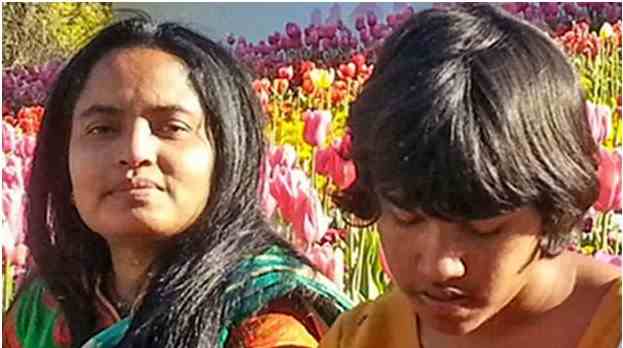Sydney, February 24: In an act of compassion by the Australian government, Assistant Minister for Immigration Alex Hawke has intervened to stop deportation of Sydney based Bangladeshi girl with autism – daughter of Dr Haque.
The teenage girl Sumaya Bhuiyan, 16, was living in Australia for the last eight years and had been ordered to leave Australia by Friday, February 24.
Blacktown based Sumaya has autism spectrum disorder.
Her family’s application for permanent residency was rejected in 2013 after immigration health checks found Sumaya had a “moderate developmental delay” that would result in significant cost to Australian taxpayers, her mother Dr Nasrin Haque told Fairfax Media on Thursday.
Dr Haque is a GP, based in Blacktown and works in two medical practices in Sydney.
She said that she had tried all avenues to appeal against the 2013 decision not to grant her family residency, including writing to the Immigration Minister to request intervention.
However, in January she received advise that Mr Hawke had decided it was “not in the public interest” to intervene.
Under section 351 of the Migration Act 1958, the Minister has the power to overturn immigration decisions, in consideration of “public interest”, but the Sumaya’s case was considered to have not fallen under that purview.
A spokesman for the Department of Immigration and Border Protection said “the Minister cannot be compelled to exercise his powers and he is not required to explain his decisions on any case.”
“What is or is not in the public interest is entirely a matter for the Minister considering each case on its own merits,” the spokesman told Fairfax Media.
“The Assistant Minister only intervenes in a relatively small number of cases which present unique and exceptional circumstances.”
Upon that decision, support poured in for Sumaya.
President of the NSW branch of the Australian Medical Association Brad Frankum said the Minister’s decision was “disgraceful”.
“It would take someone of immense callousness to split a family because one of the children is on the autism spectrum,” Professor Frankum said.
He also said that Dr Haque’s work as a GP was “of immense public interest” and if she had to leave Australia, the public would “be worse off for it.”
More than 32,000 people signed the family’s online petition appealing for ministerial intervention.
Autism is a developmental disorder that affects about one in 100 children.
Autism Awareness Australia chief executive Nicole Rogerson said the decision to deport Sumaya was “incredibly offensive” to Australians with disabilities and their families.
“It’s appalling and it’s heartless.”
Extensive community support for Sumaya and Dr Haque may have led to a change of heart and an eleventh-hour intervention by Mr Hawke.
On Friday, Mr Hawke reconsidered his refusal to intervene and granted Sumaya permanent residency.
A spokeswoman for Mr Hawke said the minister has also begun consideration of the same visa for Dr Haque and her son Sakir, subject to the usual character and health tests.
Mr Hawke said on Friday that cases like Dr Haque’s were “always complex” and involve many factors including immigration history, health, character and other issues.
“In some cases, all of the relevant information is not immediately available and a final decision can only be made after all matters have been thoroughly considered,” he said.
Dr Haque said she burst into tears when Mr Hawke called her with the news.
Moving to Hungary would have meant significant disruption to the children’s education, apart for Dr Haque having to giving up work.
She had strived to study English and fulfilled all requirements to have her medical qualification recognised in Australia.
The Haque’s also have extended family in Australia.
“I feel better, much better today,” Dr Haque said.
Ms Rogerson of Autism Awareness said that Sumaya would now have a “permanent home in Australia,” paving the way for effective treatment for her.
The Haque family are originally from Bangladesh, but now citizens of Hungary. Neither Dr Haque nor her children speak Hungarian.
Dr Haque and her son Sakir, 14, are now being considered for “public interest” visa, given Dr Haque’s ‘incredible service’ to her local community.
Dr Haque’s husband, also a doctor, resides and works in Hungary.
Vir Rajendra

